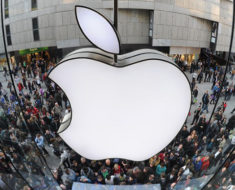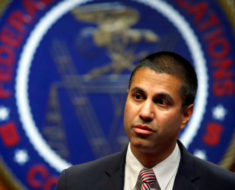In the face of the COVID-19 pandemic, medical manufacturers, pharmaceutical companies, and researchers have been needed more than ever. However, to survive the challenges brought about by the pandemic, these companies have had to adjust to the times and introduce new policies, procedures, facilities, and plans. CDMO Samsung Biologics has joined the ranks of these companies, keeping up with the latest trends in the industry while maintaining stellar quality services for its clients.
What are CDMOs and why are they relevant to the medical community? Contract development and manufacturing organizations (CDMOs) have key role to play in the world’s battle against COVID-19. They possess the capability to distribute life-saving vaccines across the globe. Furthermore, they can handle manufacturing drugs, vaccines, and whatever else is required to alleviate pharmaceutical companies from these activities. These contracts give medical researchers and developers the gift of time to create, research, and innovate in the field of inventing new medicines to address chronic health conditions.
Samsung Biologics Senior Director Joon Chang outlined the three trends he saw in the industry in a video interview with Bio Digital’s Tony Gill. These trends included:
- Expansion and increase in demand in therapeutic treatment areas beyond COVID-19.
- The need for outsourcing after a year spent handling tricky logistics during a global pandemic.
- Diversification and personalization of services tailored specifically to a unique client.
In the year 2021, Samsung Biologics has made major moves to address all three of these trends and make plans moving forward to incorporate them in their business plans.
Samsung Biologics’ Expansion of Services
Samsung Biologics has made great strides to add more services to their portfolio, particularly when it comes to the mRNA vaccine and mRNA production. While mRNA vaccines are the most popular version of mRNA, thanks to their effectiveness in preventing COVID-19, these new therapies and treatments are not just meant to be applied to COVID-19. They can also be applied to other forms of treatment as well.
mRNA has great potential when it comes to the future of medicine. They have been studied before in relation to the flu, the Zika virus, rabies, and cytomegalovirus (CMV), and in the future, mRNA vaccines might be able to provide protection against multiple viruses and diseases, instead of just one. Cancer research has also trained mRNA to trigger the immune system to target and fight against cancer cells. The greater demand for new treatments for existing conditions and non-contagious diseases has continued to rise even throughout the COVID-19 pandemic. Other people and patients still suffer from their conditions and still need specific treatment to help improve their quality of life. Senior VP, Chief Information and Marketing Officer, and Head of Investor Relations James Choi said, “We see great potential for mRNA technology to address a broader range of diseases, beyond COVID-19.
But for now, mRNA is used to create, develop, and distribute vaccines to get the world back to normal. In the latest mRNA manufacturing contract with Moderna, Samsung Biologics agreed to provide aseptic fill-finish as well as packaging and labeling of Moderna’s COVID-19 mRNA vaccine.
A Reliable Outsourcing Solution
Many companies have learned to lean on Samsung Biologics for specific services when it comes to development and manufacturing. These companies include Moderna, the creator of a highly effective mRNA vaccine that is used around the globe to prevent COVID-19.
Other companies have also found a valuable source within Samsung to outsource some of their manufacturing. Now that the world’s supply chain is susceptible to breaking, with ports closing, countries shutting down because of COVID-19, unrest, and natural disasters, it’s better for a company to have a more resilient way of outsourcing their needs to other companies.
For Eli Lilly, the contract focused on developing and manufacturing a COVID-19 therapy drug meant to treat patients already suffering from the effects of the deadly virus. Bamlanivimab was approved by the U.S. FDA after studies showed it dramatically reduced the effects of the virus on patients who were in intensive care due to COVID-19.
Furthermore, Samsung Biologics’ efforts did not just stop at COVID-19. Other diseases received just as much attention. The company partnered with TG Therapeutics to produce ublituximab, a medication meant to treat those suffering from multiple sclerosis. CEO of TG Therapeutics Michael S. Weiss said of the expansion to the already-existing contract, “Samsung is the global leader in biologics manufacturing and we are happy to have them as our partner as we look forward to the potential commercialization of ublituximab across both oncology and autoimmune indications.”
Dil Bole Oberoi





